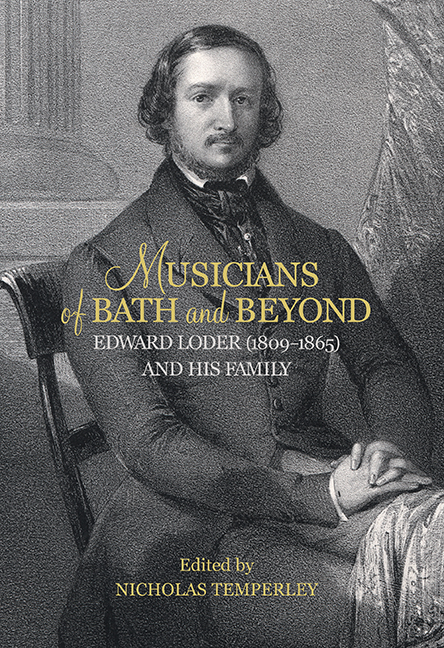Book contents
- Frontmatter
- Contents
- List of Illustrations
- Acknowledgments
- Notes on Contributors
- The Loder Family Tree
- Abbreviations
- Introduction
- PART ONE The Musical Profession in Early Nineteenth-Century England
- PART TWO The Loder Family
- PART THREE The Music of Edward Loder
- EPILOGUE The 1966 Revival of Raymond and Agnes
- Select Bibliography
- Index of Edward Loder’s compositions
- General Index
- Miscellaneous Endmatter
10 - ‘Three fifths of him genius and two fifths sheer fudge’: Heights and Depths in Edward Loder’s Work
Published online by Cambridge University Press: 04 June 2021
- Frontmatter
- Contents
- List of Illustrations
- Acknowledgments
- Notes on Contributors
- The Loder Family Tree
- Abbreviations
- Introduction
- PART ONE The Musical Profession in Early Nineteenth-Century England
- PART TWO The Loder Family
- PART THREE The Music of Edward Loder
- EPILOGUE The 1966 Revival of Raymond and Agnes
- Select Bibliography
- Index of Edward Loder’s compositions
- General Index
- Miscellaneous Endmatter
Summary
THESE words were written of Edward Loder's exact contemporary, Edgar Allen Poe. It seems to me they apply almost as well to Loder himself. The aesthetic distance that he covered in his output is wide. It can be partly explained, no doubt, by the time and place in which he lived: Stephen Banfield has explored this side of the question in Chapter 1. But it is difficult to accept that a composer who aspired to the heights of Raymond and Agnes or ‘The Brooklet’ was willing to have his name attached to such ‘fudge’ as Francis the First or ‘Sweet Village Bells’.
Poverty has compelled composers greater than Loder to devote part of their time to writing conventional music for a public that could not appreciate their genius. Schubert had to produce marches and dances in quantity for immediate publication; but he reserved whatever time he could for compositions giving free rein to his creative ideas, without considering whether they would be published or even performed. Loder did much the same. Some English composers of the time, such as Samuel Sebastian Wesley and William Sterndale Bennett, resisted the temptation to go popular. They could afford to do so (if only just) because of their incomes from salaried positions, private teaching, and public performing. Others, such as John Barnett, Robert Lucas Pearsall, and Henry Hugo Pierson, came from families with private means. Loder was not so fortunate.
London in the 1830s was a place of fierce competition among pianists, with those from Continental countries enjoying a vastly privileged position. Loder must soon have realised that piano playing alone was not going to provide him with a livelihood. He looked eagerly for chances to write theatre music. An opportunity came his way in 1834 with the production of Nourjahad, but for years after that his operatic ambitions were frustrated, as he wrote in a letter to the Morning Post in 1838.
In 1836 or 1837 he entered into an engagement with D’Almaine & Co. under which, according to George Macfarren – a generally reliable source – he had to furnish them with a new composition every week.
- Type
- Chapter
- Information
- Publisher: Boydell & BrewerPrint publication year: 2016

